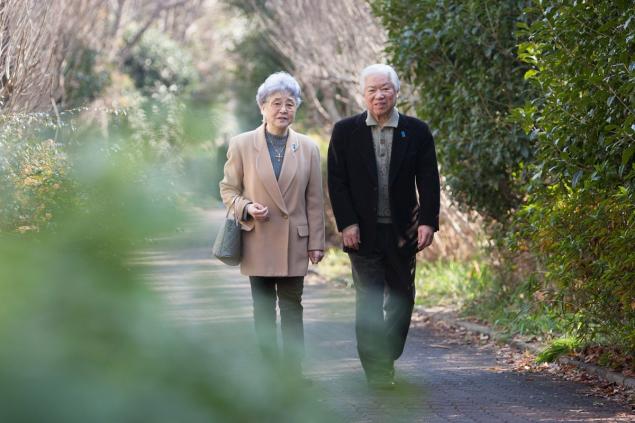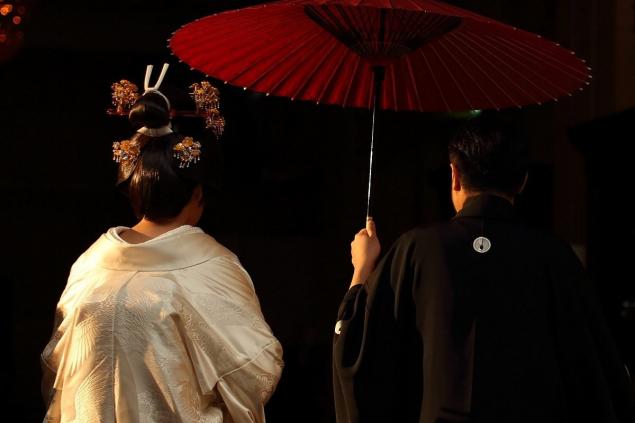210
In Japan, spouses are more friends than passionate lovers, and I like their perspective.
Japan is a country full of contrasts. Despite the apparent patriarchy and powerful influence of tradition, there are still things that can be shocking. It makes no sense to go into details, much is known. Who would have thought that and Japanese relations Between a man and a woman can also be, to put it mildly, not like everyone else.

GettyImages Edition "Site" I was interested in the statistics, which fell into our hands by chance. Interest, in turn, was replaced by surprise. Who knows if that's always been the case? Maybe the Japanese are affected by the rapid development of technology? Let's find out together what's going on.
Japanese relations are unclear here. Does a Japanese family have a favorite? Or it's just a marriage partner and a friend. Why are we in such a hurry to draw this conclusion? The fact is that according to the generally accepted canon, two in a pair not only live together, eat and shop together, but also, in fact, sleep. With all the ensuing.

That is, physiological contact in the usual volumes is not observed at all. It's reported alarmingly. Japanese Demographic research. Every five years, he conducts a study to find out what Japanese people have with family behavior. And the results are as follows.
According to the data obtained from the questionnaires, 90% of couples dine together, but for intimate rides in bed, the answers “is” or “sometimes there” were received only in 25% of cases. So what happens? Do they have anything but friendship inside their family?

GettyImages Japanese relations. Not so joyless in young families, they are much more likely to answer “right”. Until about 29, it's okay, and then it starts. At the same time, the institution of demography remains quite traditional. For example, the law does not allow wives to have other names than the husband. Also, very few children in Japan are born outside of marriage, and the overall birth rate is not good.

The Japanese themselves note that due to the strict rules established by the institute, the birth rate cannot return to normal. The system is pretty inflexible. Perhaps that is why Japan has only 2% of illegitimate children, while in America it is more than 40%.
Another interesting fact: in Japan, it is not customary to be happy when married. At the time of marriage, many duties immediately fall on the couple. And couples are forced to make such sacrifices, if only because marriage is the only one. lawfulness to have and raise a child.
Other causes
It is worth noting that the government itself does not seem to be interested in the Japanese marrying and procreating. Since the nineties of the last century, the family model has become obsolete. Previously, only a man worked, and a woman was engaged in the upbringing of children. In just ten years, the number of families in which both spouses work has become more than families with one working spouse.
The queues for kindergartens are still growing, although it would seem that this trend should decrease, because the birth rate is not increasing. Nevertheless, there is such a paradox. This is not to say that the government does nothing, but all attempts are regularly broken up against the rules of the institution of the family.

GettyImages, however, Japan will not be bypassed by changes. You can already see how Japanese youth behave. Young people pay less and less attention to some rules and try to live according to their own understanding. Will there be a cultural conflict? Who knows. After all, we are not Japanese and we understand their realities so well.
It is not clear now - to envy the Japanese or, conversely, to regret. On the one hand, it's great that they value each other in a versatile way, and on the other, how about without a bed? I wonder what happens in our families? Is it possible to say that our situation is fundamentally different and we are not at all like the Japanese in this regard? Write about it in the comments!

GettyImages Japanese relations They are more like a “Japanese city” than a family full of harmony. As they say, everyone has their own truth. Read our article on why exes tend to come back when they are not expected. Thank you for staying with us!
Photo preview and article .

GettyImages Edition "Site" I was interested in the statistics, which fell into our hands by chance. Interest, in turn, was replaced by surprise. Who knows if that's always been the case? Maybe the Japanese are affected by the rapid development of technology? Let's find out together what's going on.
Japanese relations are unclear here. Does a Japanese family have a favorite? Or it's just a marriage partner and a friend. Why are we in such a hurry to draw this conclusion? The fact is that according to the generally accepted canon, two in a pair not only live together, eat and shop together, but also, in fact, sleep. With all the ensuing.

That is, physiological contact in the usual volumes is not observed at all. It's reported alarmingly. Japanese Demographic research. Every five years, he conducts a study to find out what Japanese people have with family behavior. And the results are as follows.
According to the data obtained from the questionnaires, 90% of couples dine together, but for intimate rides in bed, the answers “is” or “sometimes there” were received only in 25% of cases. So what happens? Do they have anything but friendship inside their family?

GettyImages Japanese relations. Not so joyless in young families, they are much more likely to answer “right”. Until about 29, it's okay, and then it starts. At the same time, the institution of demography remains quite traditional. For example, the law does not allow wives to have other names than the husband. Also, very few children in Japan are born outside of marriage, and the overall birth rate is not good.

The Japanese themselves note that due to the strict rules established by the institute, the birth rate cannot return to normal. The system is pretty inflexible. Perhaps that is why Japan has only 2% of illegitimate children, while in America it is more than 40%.
Another interesting fact: in Japan, it is not customary to be happy when married. At the time of marriage, many duties immediately fall on the couple. And couples are forced to make such sacrifices, if only because marriage is the only one. lawfulness to have and raise a child.
Other causes

It is worth noting that the government itself does not seem to be interested in the Japanese marrying and procreating. Since the nineties of the last century, the family model has become obsolete. Previously, only a man worked, and a woman was engaged in the upbringing of children. In just ten years, the number of families in which both spouses work has become more than families with one working spouse.
The queues for kindergartens are still growing, although it would seem that this trend should decrease, because the birth rate is not increasing. Nevertheless, there is such a paradox. This is not to say that the government does nothing, but all attempts are regularly broken up against the rules of the institution of the family.

GettyImages, however, Japan will not be bypassed by changes. You can already see how Japanese youth behave. Young people pay less and less attention to some rules and try to live according to their own understanding. Will there be a cultural conflict? Who knows. After all, we are not Japanese and we understand their realities so well.
It is not clear now - to envy the Japanese or, conversely, to regret. On the one hand, it's great that they value each other in a versatile way, and on the other, how about without a bed? I wonder what happens in our families? Is it possible to say that our situation is fundamentally different and we are not at all like the Japanese in this regard? Write about it in the comments!

GettyImages Japanese relations They are more like a “Japanese city” than a family full of harmony. As they say, everyone has their own truth. Read our article on why exes tend to come back when they are not expected. Thank you for staying with us!
Photo preview and article .
She married a rich man, but never found happiness.
Children's problem about coins that will attract cash flow























